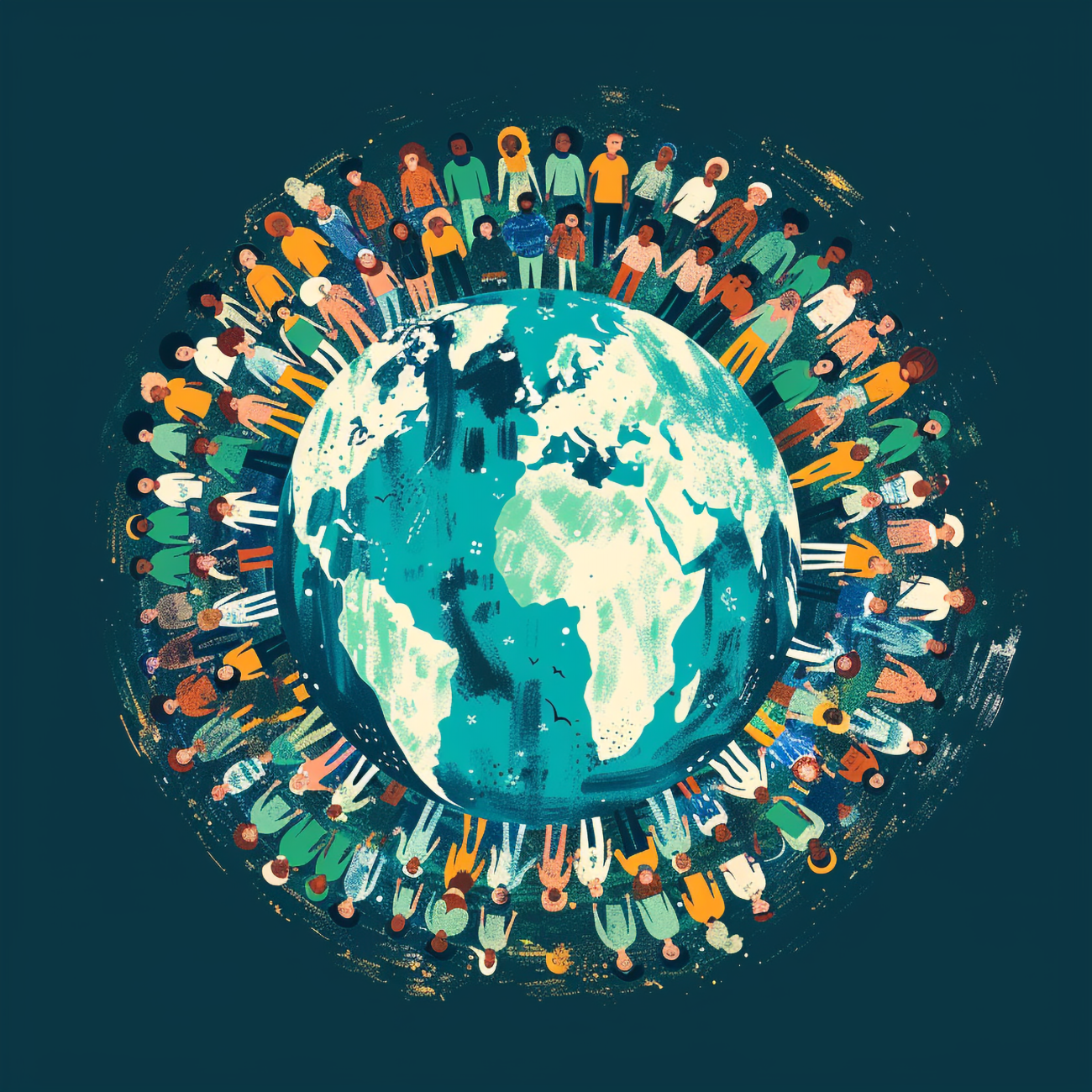
Planetizing Citizenship Impact Outcomes
Planetizing Citizenship
The Humanities Lab is at the forefront of experiential learning at ASU and the fall 2024 Planetizing Citizenship course, part of the UNESCO BRIDGES Flagship Hub series of Humanities Labs, served as a direct extension of this effort. Students in the lab had the opportunity to work alongside co-faculty leads Iveta Silova, professor and associate dean of Global Engagement at Mary Lou Fulton College for Teaching and Learning Innovation as well as Joni Adamson, President's Professor of Environmental Humanities in the Department of English and founding director of the Flagship Hub UNESCO BRIDGES Sustainability Science Coalition. The instructional team additionally included Sreya Ann Oommen, UNESCO BRIDGES Post Doctoral Research Scholar and Joyce Martin, librarian and head of Social Sciences at ASU Library. Together the students and instructional team collaborated to research how climate-induced migration and biodiversity loss challenge the concept of citizenship. Through interdisciplinary research, they examined the need to shift from traditional citizenship to a broader notion of “planetizenship,” engaging across gender, age, class, race, ability, species, machines, and matter. This work culminated in outcomes that reimagined global cooperation and policymaking to address the challenges posed by climate change, ensuring the rights and survival of both humans and non-humans.
Humanities Week: Designing Planetizenship Event
The Planetizing Citizenship Lab students and faculty team celebrated Humanities Week by hosting the Designing Planetizenship: Manifestos, Constitutions, Declarations, and Art as Tools for Building Inclusive Futures! event, bringing research and creativity together for an interactive showcase along Cady Mall on the Tempe campus. Guests were invited to engage with live blog readings and tune into podcasts that challenge the status quo and explore new concepts like 'Planetizenship' and to discover how manifestos, constitutions, art and science fiction can spark imagination and collective action on critical issues like climate migration and rights of nature.
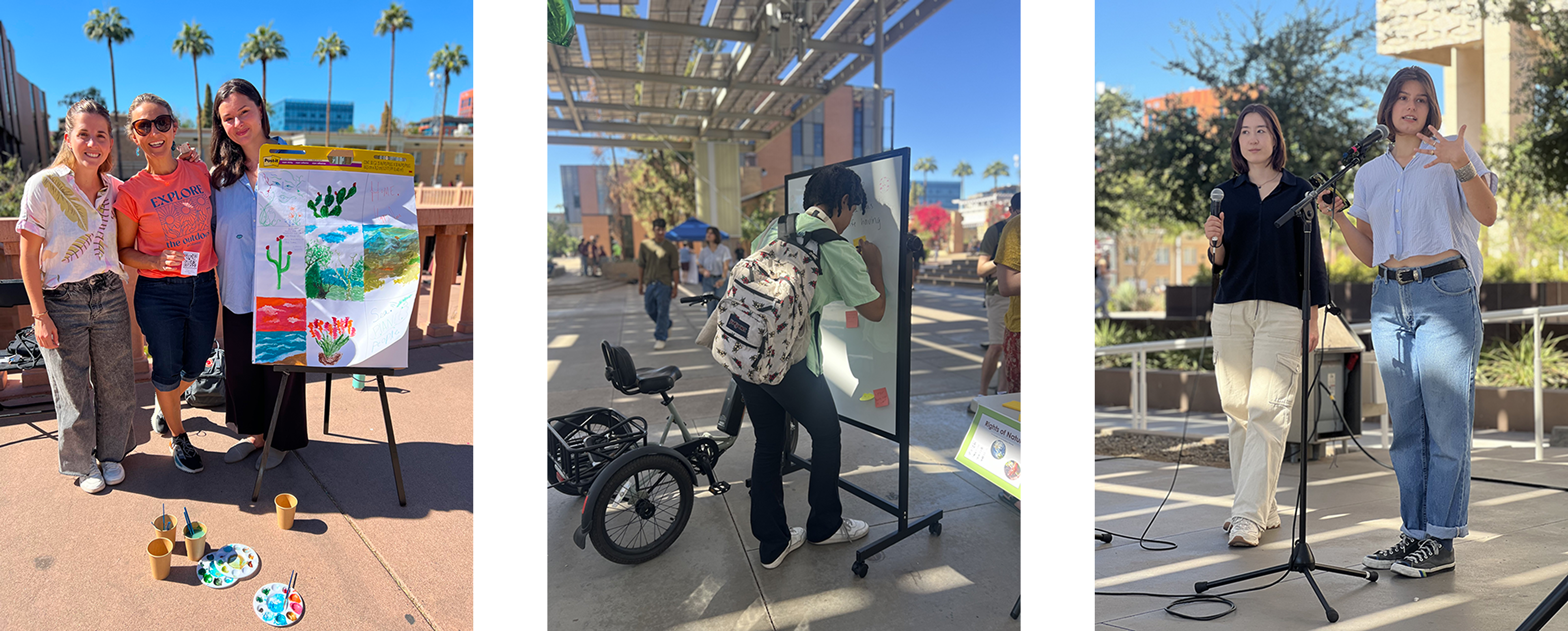
Student Outcomes
Ecomedia and Perceptions
As part of the Ecomedia and Perceptions team within the Lab, a group of students explored how media shapes environmental awareness. They curated a list of 25 films, music, and other media that highlight climate change, biodiversity, and environmental justice. Students analyzed how different genres—documentaries, fiction, animation, and music—convey ecological issues and inspire action. They categorized the selections into themes such as sustainability, nature vs. society, and environmental justice. The outcome aimed to show how storytelling in media can influence perceptions of the environment and encourage a deeper connection to nature. Learn more about it here.

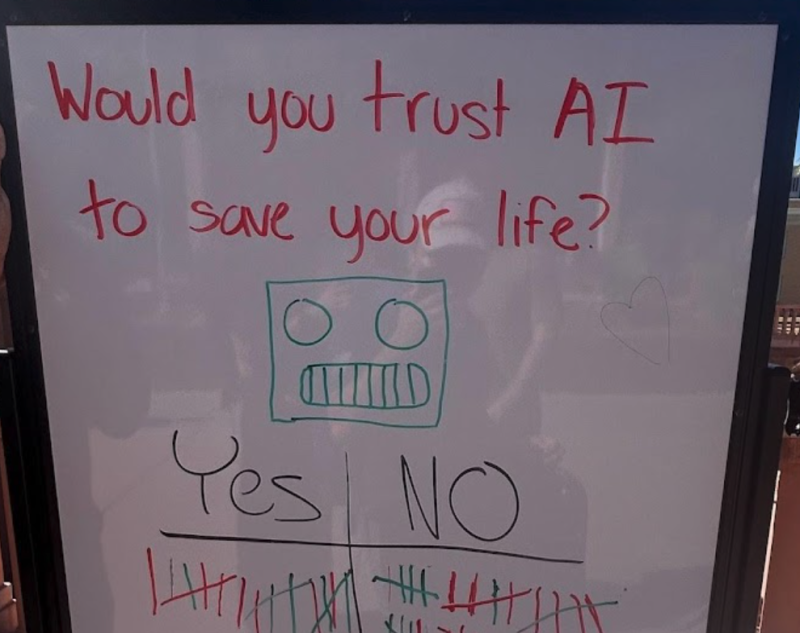
How AI affects the Environment
This student outcome focused on the environmental effects of AI and technology. A team analyzed the energy usage of AI tools like ChatGPT, showing how much more energy AI models use compared to Google searches. The project also highlighted the massive amounts of fresh water consumed by AI training and its carbon footprint, predicting that AI’s emissions will keep growing. They also looked at the environmental costs of electric vehicles, including energy use, battery disposal, and unethical practices in mining. A podcast was created to discuss these issues and encourage awareness of AI’s sustainability challenges. Learn more about it here.
Melanie's Desert Adventure
This student-led outcome focused on creating a children’s book, Melanie’s Desert Adventure, to teach environmental justice, conservation practices, and the rights of nature. The story follows a young girl, Melanie, who moves to Arizona after a hurricane and is introduced to the desert ecosystem, including a woodpecker named Wren and a saguaro cactus. Through their journey, the characters in the book learn the importance of listening to indigenous cultures, protecting biodiversity, and rethinking human-environment relationships. The outcome broadly connects to the United Nations Sustainability Development Goals, particularly Quality Education (SDG 4) and Life on Land (SDG 15), aiming to educate future generations about conservation and the rights of non-human species. The students' book uses storytelling to foster empathy and critical thinking among young readers, promoting ecological awareness and a sense of community with nature. Learn more about the project here. Check out the book here.
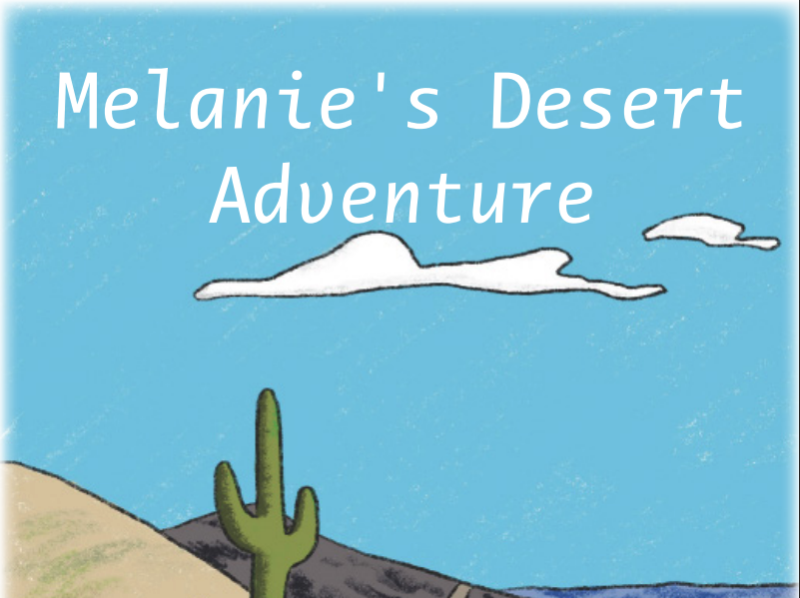

Rights and Citizenship in the Era of Humanity, Robots, and the Climate Crisis
The “Rights and Citizenship in the Era of Humanity, Robots, and the Climate Crisis” student outcome focuses on the challenges of human migration, AI citizenship, and the climate crisis. The Lab team explores the case of "Sophia," a robot granted citizenship by Saudi Arabia, and compares it with the struggles of refugees like Ahmed Salah, who face denial of asylum despite dire circumstances. The outcome examines how society grants rights and questions the value placed on human lives versus technology. The students aligned their work with the United Nations Sustainability Development Goals, 10 and 16, advocating for inclusive systems that respect both human and AI rights while addressing climate change. Their research covers legal, environmental, and technological issues proposing more equitable governance models that prioritize justice for all. Learn more about the research outcome here.
Youth for Planetizing Citizenship and Climate
This outcome, led by student team Emmalyn, Mauricio, Katie, Gabby, and Rodrigo, aims to raise awareness about climate change and encourage youth action. The team created two Instagram accounts—Youth for Planetized Citizenship and Climatists—to share educational content, advocate for climate policies, and promote sustainable practices. They also designed a climate pledge, encouraging actions like reducing meat consumption and using public transportation. The group additionally produced a podcast discussing climate issues and social media's role in advocacy. For their final presentation, they asked students to sign a "climate pledge" and created a "climate pledge tree" to symbolize collective action. The project supported the United Nations Sustainability Development Goal, number 13, Climate Action. Learn more about their work here.
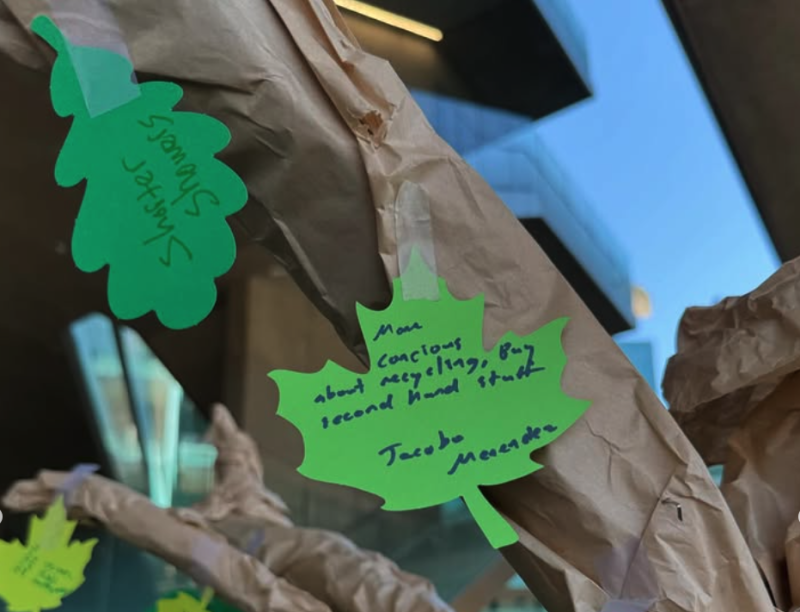
Planetizing Citizenship: Climate Pledge Event
As part of the Planetizing Citizenship Lab, students organized a hands-on climate pledge event, inviting the ASU community to commit to a healthier planet. Participants were able to get temporary tattoos (designed by a student in the course), wrote personal pledges on paper leaves, and added the leaves to a handcrafted climate pledge tree—symbolizing collective action for planetary well-being. The tree, still standing in the Walton Center for Planetary Health, continues to grow as visitors to its classroom home contribute their commitments. This interactive project was just one way the lab encouraged creative activism, inspiring real conversations about environmental responsibility and global citizenship.
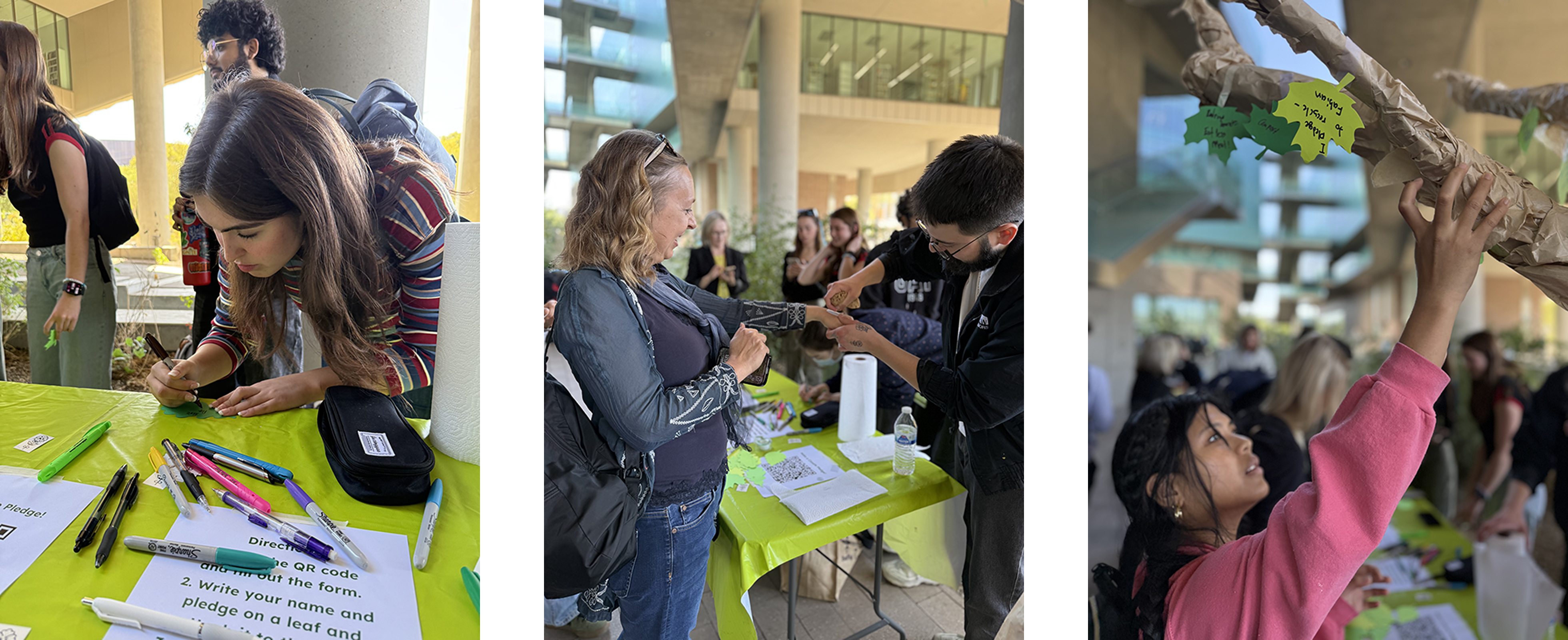
Collaborative Partners
- Carrie Kaarzgard, Arizona State University
- Ed Stevenette, Learning Planet Alliance Project Manager
- Maria Angelica MEJIA CACERES, Pedagogical Projects Manager

Note: The views presented or expressed on this page are those of the speaker or author only and do not necessarily represent the views of Arizona State University.